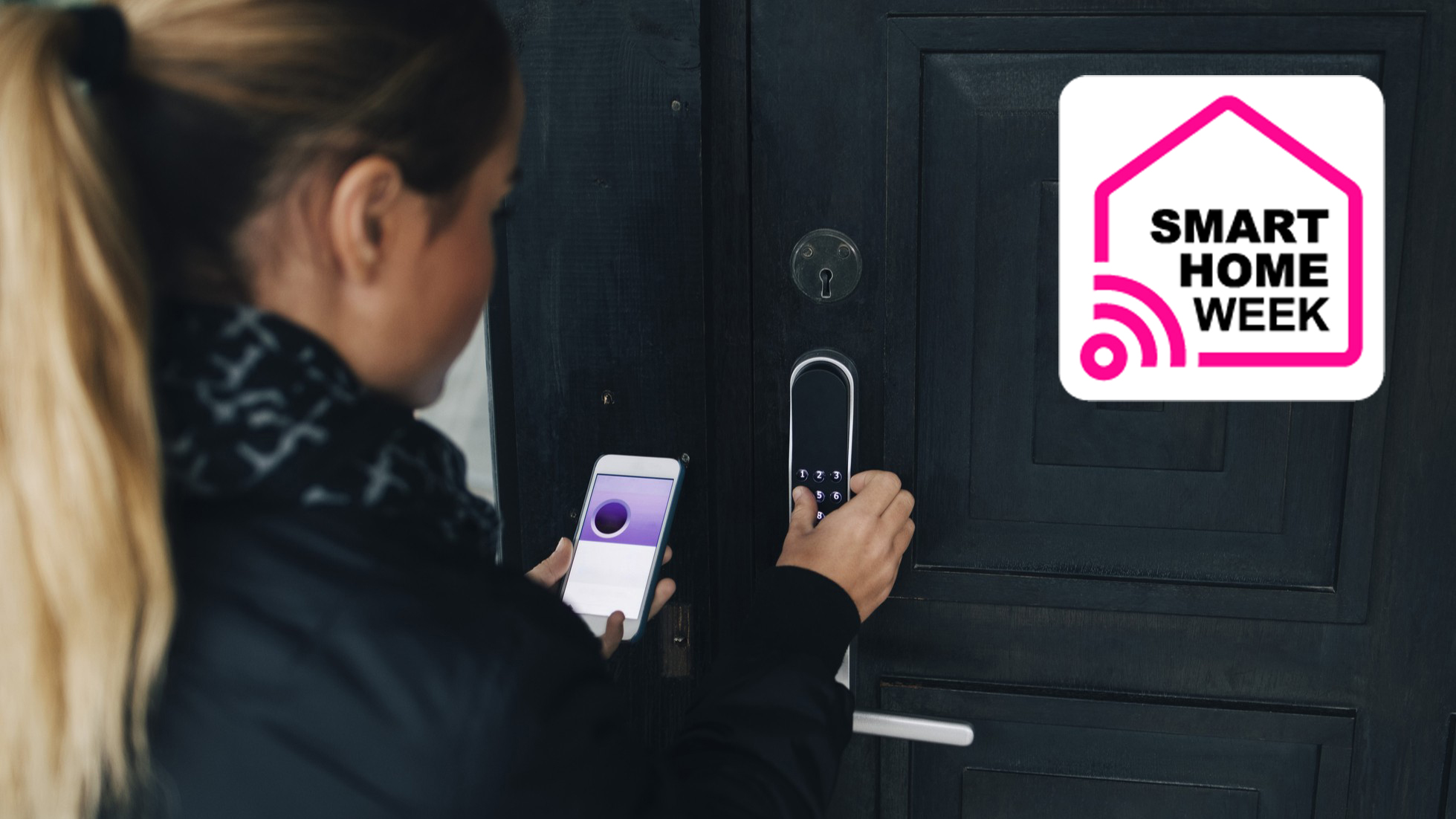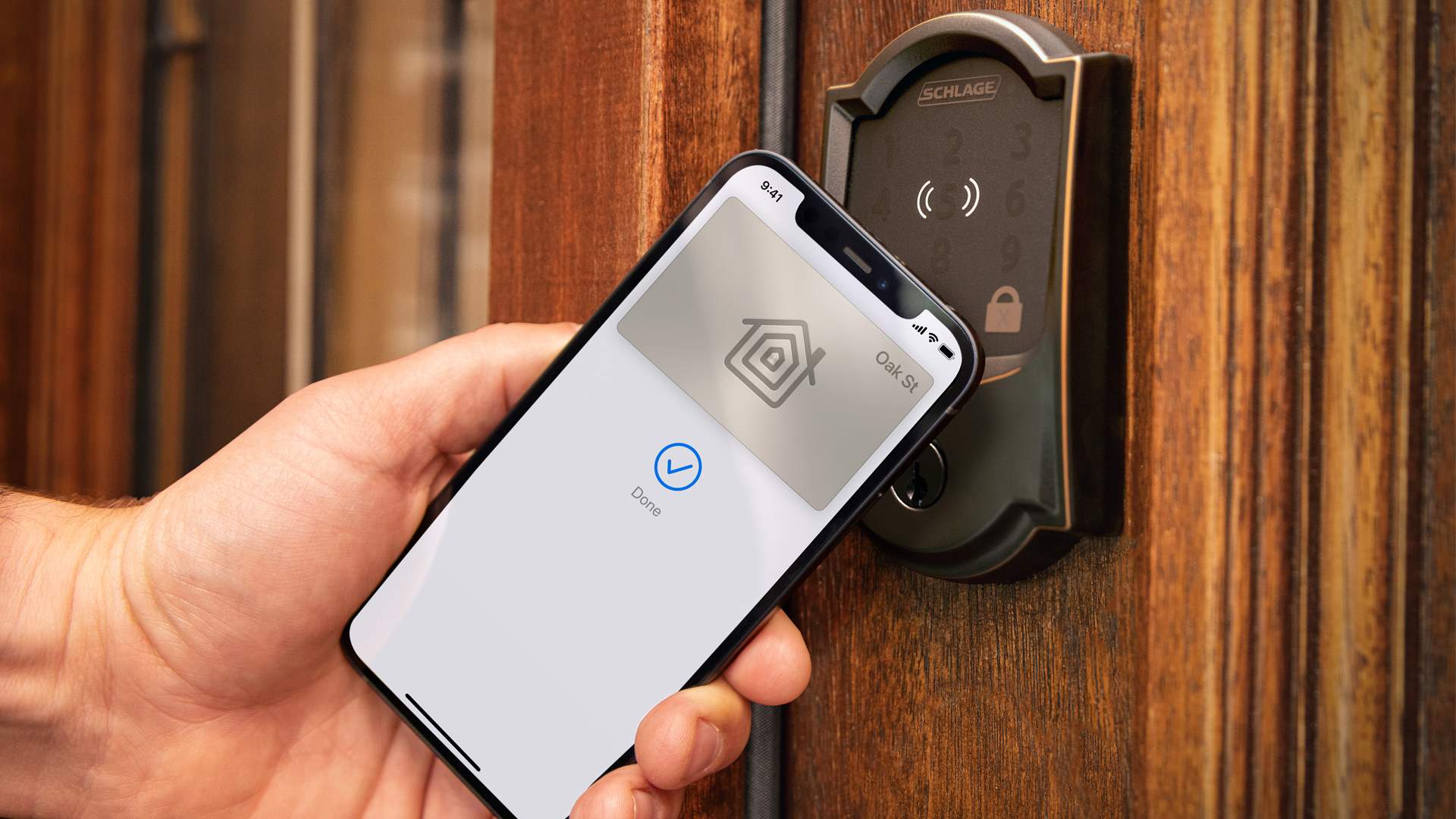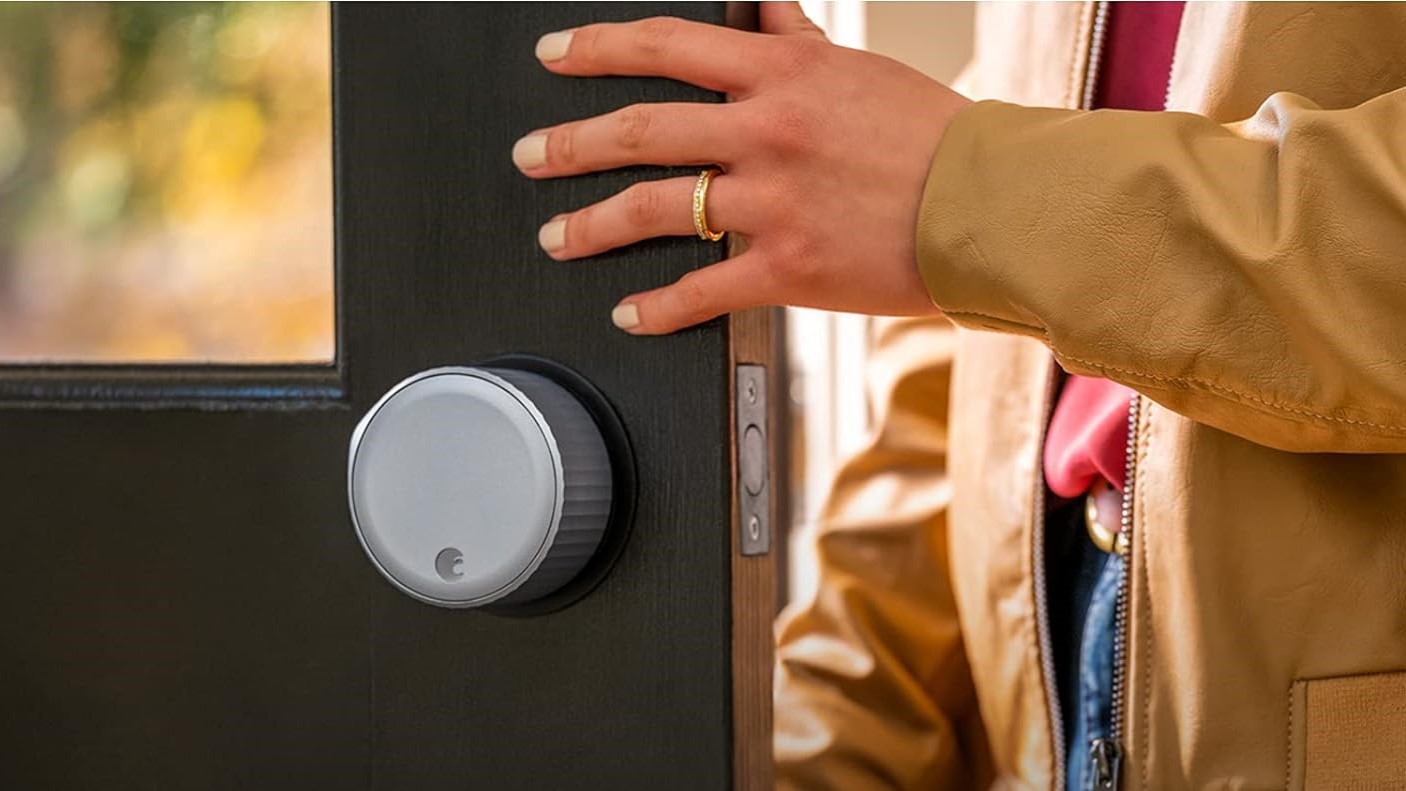Should you buy a smart lock or stick with your keys? Weighing up the pros and cons of connected security
Wondering whether to switch to a smart lock? We're here to help

Sign up for breaking news, reviews, opinion, top tech deals, and more.
You are now subscribed
Your newsletter sign-up was successful
This article is part of TechRadar's Smart Home Week 2025. From lighting and switches to robot window cleaners and smart thermostats, we're here to help you pick the right devices to make your life easier, and get the most out of them.
How we keep our properties secure really hasn’t advanced that much in thousands of years. According to Pliny the Elder, the first key was used by Theodorus of Samos in the sixth century BC. Today, most of us are still using keys to lock and unlock our homes.
However, things are changing, albeit slowly, in the corporate world. For example, until the 1980s, all hotels used to provide keys on heavy key rings that you had to hand in at the front desk when you went out. Now most use card entry systems (though still far too many rely on basic magnetic cards which stop working if placed too close to a phone).
Similarly, many larger workplaces and hotels/apartment buildings have fitted systems which use cards equipped with NFC (near field communications) or RFID (radio frequency identification) technology for access control as well as locking/unlocking rooms. Indeed, both are examples of smart lock systems with the card reader serving as an electro-mechanical lock and the card effectively a modern-day key.
However, in the home, progress towards adopting smart locks been much slower, largely for cost reasons. In fact it’s only really been with arrival of the smartphone that key-less entry systems have become a reality. In this feature, we look at the pros and cons of buying a smart lock to help you decide whether it’s time to make the switch.
Not sure which one to choose? Our guide to the best smart locks is full of recommendations for all budgets and homes.
Reasons to switch to a smart lock
If, like me, you are forever losing or at least mislaying your keys, then the prospect of unlocking or locking your home in another way is appealing one. How about, instead of having to fumble around for keys, you could access your home using another method such as a fingerprint (difficult to lose!) key code or perhaps smartphone app.
One advantage of a smartphone app over a key is that you are less likely to lose it or leave it behind somewhere. Indeed, many of the latest smart locks from established lock companies such as Yale and Master Lock (as well as newer firms like TCL and SimpliSafe) can be controlled via your smartphone. Instead of having to get your keys out each time you want to open the door, you can access the property either via an app on your phone or by adding a ‘digital credential’ such as Apple Home Key to your phone or smartwatch.
Sign up for breaking news, reviews, opinion, top tech deals, and more.

Nor is it only the front door you can open and close with a smartphone. Some of the latest smart padlocks, such as the Master Lock Bluetooth Smart Padlock, also offer mobile phone control so you can unlock/lock your bike or shed without having to use a physical key or easily guessable four-digit combination.
Using a smartphone as a key enables you to open and close doors remotely (handy if you aren’t sure whether you locked the front door when you left the house) or provide temporary access to guests. As a result, smart locks are an excellent choice if you rent out a property via Airbnb, or need to let contractors in while you're at work.
Furthermore, smart locks can also integrate with other smart home devices and platforms (such as voice assistants, smart lighting, or security cameras) to create automated routines. For example, your lights could automatically turn on and your security system disarm itself as soon as you unlock the front door using your smartphone.
Reasons to stick with your keys
There are two good reasons why keys have dominated the home security industry for so long: they are cheap and they work. As with most technology, smart locks are great until something goes wrong.
For example, we have heard of people being locked out of their property during a power cut because their devices required electricity or that they’ve stopped working suddenly because the batteries ran out of charge.
Similarly, smart locks need to communicate with your device via wireless protocols such as Bluetooth or WiFi so if your home’s network goes down or if there’s interference, you'll have to use the physical key that's provided as a backup.

Smart locks typically cost more than standard locks too. Often they require entirely new hardware, including a new lock as well as fingerprint reader or keypad (though there are some systems that can be retrofitted such as the August WiFi smart lock which attaches to your existing deadbolt). You will also need to ensure that all the existing key owner have smartphones equipped with the smart lock app or that their fingerprints will work to unlock/lock the door!
There are other concerns about smart locks too. While manufacturers implement strong encryption of course, any internet-connected device carries an inherent risk of being hacked. Smart locks also collect data, such as entry and exit times for each user (that’s one reason why they are popular with larger employers who want to monitor staff). And while this data is usually encrypted and stored securely by the manufacturer, it may be a concern for some users worried about privacy.
Conclusion
Most of us have probably been using smart lock technology for years, whether that’s an NFC-equipped card to open a hotel room or a key fob to access an office building. But when it comes to home use the technology has been much slower to catch on.
However, this is beginning to change. Smartphones have made it easier than ever before to access homes without the need for a physical key while the cost of smart lock installations has fallen as the technology has become more widespread.
Finally, although there are some understandable concerns over privacy and hacking with smart locks, at least with a digital set-up you don’t risk dropping your keys in the sea never to be seen again – and yes, I have done that before.
You might also like

Over 25 years experience as a staff and freelance journalist. Currently working freelance for The Daily Telegraph, writing technology content for the newspaper as well as working with their clients (Vodafone Microsoft, Nokia, SAP, DXC, BAE Systems) on branded content.
You must confirm your public display name before commenting
Please logout and then login again, you will then be prompted to enter your display name.